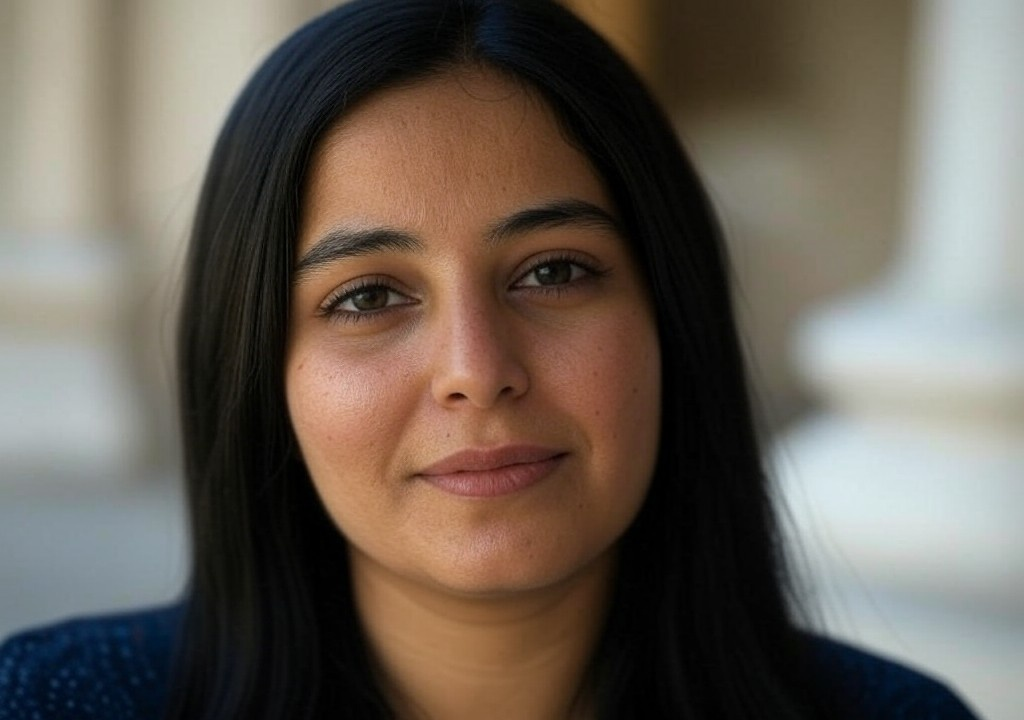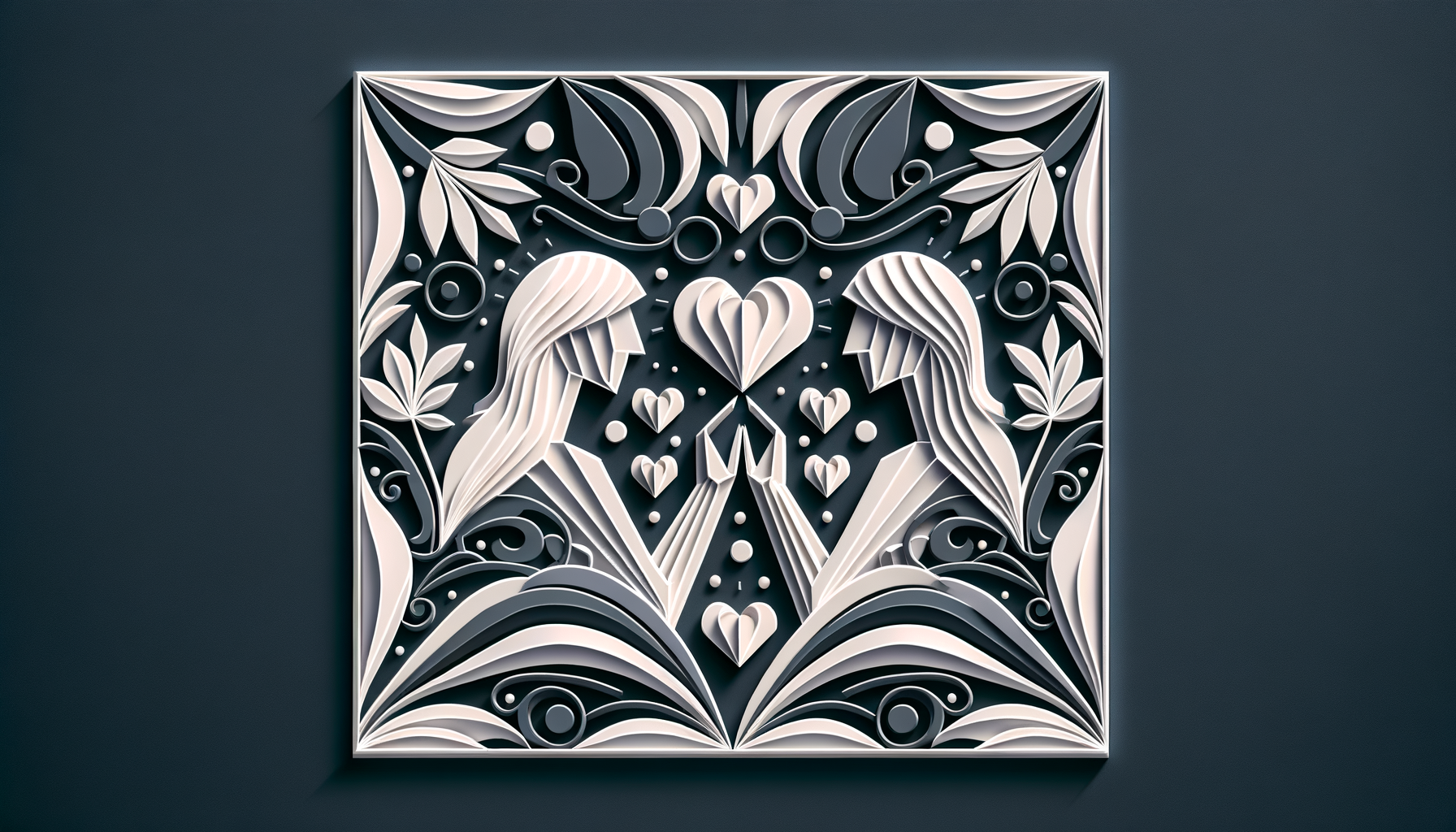"When my editor assigned me to write about heartbreak, I thought, 'No problem, I’ve been through breakups—I basically have a PhD in them.' Except, this wasn’t about your standard, 'He ghosted me after three amazing dates' kind of heartbreak. This was about unpacking cultural expectations, generational divides, and the silent sacrifices women in my family have made in the name of love. You know, the light stuff.
To say this was the hardest piece I’ve ever written would be like saying Cleopatra was 'kind of' ambitious. It forced me to confront not only my own relationship history but also the stories of women I deeply admire. Let me take you on the journey of piecing it together and, surprisingly, how it reshaped my definition of love altogether."
Breaking Up With Tradition
"Growing up in Alexandria, I had a front-row seat to the intricate theater of Egyptian relationships. It was all there: fiery passion, familial expectations, and the unspoken but ever-present scripts on how love 'should' look.
My grandmother—a woman who could part a room with her presence but never owned a bank account—used to tell me, 'El-bayt maynfa’ash walla bintayn.' Translation? A home cannot handle two queens. I didn’t quite understand the weight of her words until I was older and noticed how much she dimmed her brilliance in her marriage. That hit differently once I started dating.
When I moved to Paris at ten, I learned that romance could feel utterly different. The Parisian couples I observed didn’t just argue; they debated in bars, scandalizing insolent teenagers with their public—and very efficient—make-out sessions on the Métro. So imagine the culture shock of bouncing between these two worlds: one where weddings were community blockbusters sprinkled with ululations and gold, and the other where love seemed to bloom under the promise of individual freedom, even if it came with a side of existential crises.
This tug-of-war between tradition and modernity was where my hardest article began. It wasn’t just about heartbreak—it was about the cracks between two cultures that dictated what 'good love' looked like and how those rules have shaped me in ways I hadn’t fully realized."
Lessons From a Not-So-Hollywood Romance
"When I started piecing together my reflections for the article, I excavated my relationships like a heartbroken archaeologist in denial. From my bemused French boyfriend who couldn’t understand why I insisted we celebrate our fextra Egyptian anniversary (the night his mom pronounced my name correctly for the first time, obviously) to a relationship in London that dissolved over hard-to-articulate cultural differences, there was one glaring theme: Where love stopped, compromise and identity began to compete like contenders in a boxing ring.
Let me share an honest moment. During one breakup—I’ll spare you the messy details—I remember scrolling through breakup playlists (yes, of course Adele was involved), sobbing until my face resembled overripe fruit. My best friend texted me, 'How many years did you just cry off your life?' Humor pierces through heartbreak like sunlight on a stormy Parisian day.
Heartbreak doesn’t just hurt; it interrogates you. Was I asking too much? Was I giving too little? Had I let the insecurities instilled by cultural pressures warp what I wanted from a partner? These questions weighed heavily on me and echoed in the piece I ended up writing."
Writing It Out: What I Learned
"Here’s a little something they don’t tell you about writing through pain: It feels a bit like learning to cook while your kitchen is on fire. Every sentence forced me to take a second look at my decisions—both the reckless dives into romance and, equally, the times I held myself back like a tourist too afraid to try the local food.
In the process of pulling together childhood memories, awkward first dates, and tearful goodbyes, I learned a few things about navigating heartbreak (and love) in multicultural contexts. Consider these hard-won lessons my love letter to anyone who’s ever felt torn between two worlds:
-
Your love story has no universal blueprint. Tradition is beautiful, but it’s not gospel. You have the agency to decide what works for you. Whether it’s sharing a lineage of recipes or rewriting the family playbook entirely, you’re the architect.
-
Romantic independence doesn’t mean isolation. Moving to Paris taught me that there’s strength in self-sufficiency. But don’t mistake resilience for the inability to lean on others. You’re allowed to ask for help, even if your ancestors were all 'strong, silent types.'
-
Communicate beyond clichés. Real talk: It’s much easier to stick to familiar lines like 'I’m fine' or 'It’s just not the right time' after a difficult breakup. But facing the truth—whether with a partner or yourself—doesn’t just set you free. It teaches you a new language for love.
-
Let tradition adapt. In my own life, I enjoy aspects of my upbringing, like bringing an Egyptian dish to holiday gatherings or celebrating small milestones with Arabic music humming in the background. These cultural mementos don’t have to feel like shackles; they can become heirlooms you pass on, in your own way."
The Takeaway: A Love Letter to Endings and New Beginnings
"Writing the hardest piece I’ve ever written didn’t just force me to dig deep into personal and familial history; it helped me understand how culture, heartbreak, and identity intertwine. It wasn’t easy to share the parts of myself that were still raw, nor to analyze love when I wasn’t sure what my conclusions would be. But I’m grateful. Why? Because I ended up learning this: Heartbreak doesn’t mean you've failed at love. Just as a good writer refines their drafts, it’s proof that you’re a work in progress too.
And isn’t that beautiful? To know your capacity to learn, love, and heal is infinite?"




















